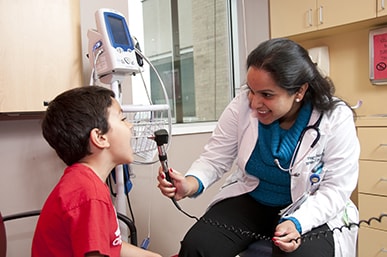Postdoctoral Symposium
 |
Funlola Are, Ph.D. Department of Psychiatry and Behavioral Sciences Chair, Postdoctoral Symposium |
Funlola,博士,助理教授Faillace Department of Psychiatry and Behavioral Sciences. Her program of research focuses innovative methods to identify children at risk for traumatic stress and ways to expand the reach of evidence-based prevention and intervention initiatives to underserved populations. Pursuant to this, she has led and collaborated on investigations related to examining physical and biological factors related to socioemotional functioning in mother-child dyads, novel approaches to maltreatment identification in primary care settings, dissemination and implementation of evidence-based trauma interventions, and the evaluation of an evidence-based kinship caregiver case management and maltreatment prevention program.
 |
Juneyoung Lee, Ph.D. Department of Neurology “Gut metabolites: How the microbiota regulate host immunity and behavior in aging and after stroke“ |
李博士黏膜免疫学博士期间研究. training in Dr. Hiroshi Kiyono’s laboratory at The University of Tokyo from 2013 to 2016. His primary focus was investigating how epithelial and immune cells in the intestines respond to inflammation in the context of inflammatory bowel disease. In 2016, he joined Dr. Louise McCullough’s laboratory in the Department of Neurology, McGovern Medical School at The University of Texas Health Science Center at Houston (UTHealth) as a postdoctoral research fellow. With the support of a Postdoctoral Fellowship and the Lawrence M. Brass Stroke Research Award from the American Heart Association (AHA) and the American Brain Foundation, Dr. Lee’s research explored how the microbiota-gut-brain axis alters neuroinflammation in aging and stroke models. In 2021, he won the President’s Excellence in Postdoctoral Research Award at UTHealth for his work. Dr. Lee was also recently awarded a Career Development Award from the AHA for his new studies interrogating the role of gut lymphocytes and their interactions with microglia in cerebral amyloid angiopathy and Alzheimer’s disease. Dr. Lee is currently an Assistant Professor in the Department of Neurology at McGovern Medical School, and his laboratory of neuro-mucosal immunology is exploring (1) neuro-immune interactions; (2) host-microbe interactions; and (3) inter-organ communication in aging and age-related cerebrovascular and neurodegenerative diseases. His laboratory aims to determine the mechanisms underlying brain-gut communication in diseases. This work will identify new therapeutic targets to manipulate the gut-brain axis using state-of-art techniques including metagenomics, metabolomics, flow cytometry, brain organoids, and single-cell RNA sequencing.
 |
Zhiqiang Ku, Ph.D. Institute of Molecular Medicine, Texas Therapeutics Institute “Antibody immunotherapy of infection and cancer” |
Dr. Zhiqiang Ku received his Ph.D. at Institute Pasteur of Shanghai, Chinese Academy of Sciences. Subsequently, he worked as a scientist at the Boehringer-Ingelheim R&D Center in Shanghai. Dr. Ku joined Dr. Zhiqiang An’s lab in 2017 as a postdoc and was promoted to an instructor recently. During his training, Dr. Ku’s research focuses on antibody-drug discovery for cancers and COVID-19. In response to the pandemic, Dr. Ku rapidly discovered a neutralizing antibody cocktail targeting the spike of SARS-CoV-2. To overcome the challenges facing IgG-based COVID-19 therapy, he developed a nasal delivered IgM antibody with potent and broadly neutralizing activity against SARS-CoV-2 variants. For cancer immunotherapy, Dr. Ku discovered a novel antagonistic antibody targeting the myeloid checkpoint receptor LILRB2 for treating solid tumors. The two antibodies discovered by Dr. Ku have been licensed by biotech partners and are now in phase I clinical trials.
 |
Sunny Nigam, Ph.D. Department of Neurobiology and Anatomy “A distinct population of heterogeneously color tuned neurons in macaque visual cortex“ |
Dr. Sunny Nigam obtained his undergraduate and master’s degree in Physics from India. To further pursue his scientific interests, he moved to the United States where he obtained his doctoral degree in Biophysics at Indiana University under the supervision of Dr. John Beggs. Dr. Nigam’s work focused on inferring network connectivity between hundreds of neurons using information theory and high-performance computing. His doctoral work led to the discovery of a sub-network of densely connected hub neurons (rich-club) in the micro-connectome of the cortex. In addition to his research, Dr. Nigam spends a significant portion of his time at Indiana University as an Assistant Instructor teaching physics to undergraduate students. To add to his scientific training in computational neuroscience, he joined Dr. Valentin Dragoi’s lab at the McGovern medical school at UTHealth. There he was able to obtain training in in-vivo electrophysiology in non-human primates to answer a diverse set of questions on how complex visual stimulus is encoded in populations of neurons in behaving macaques. Dr. Nigam’s future goal is to set up his own laboratory as an independent investigator to pursue pertinent questions related to brain function and mentor a diverse group of future scientists in the field of systems neuroscience.
